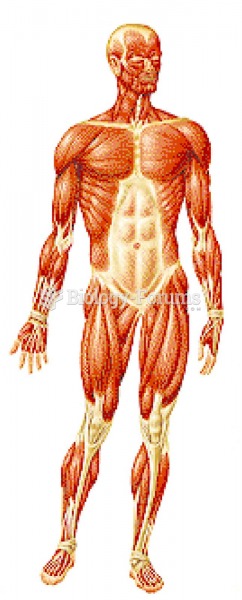|
|
|
Did you know?
Colchicine is a highly poisonous alkaloid originally extracted from a type of saffron plant that is used mainly to treat gout.
Did you know?
In 1864, the first barbiturate (barbituric acid) was synthesized.
Did you know?
Blood is approximately twice as thick as water because of the cells and other components found in it.
Did you know?
Increased intake of vitamin D has been shown to reduce fractures up to 25% in older people.
Did you know?
Thyroid conditions may make getting pregnant impossible.







